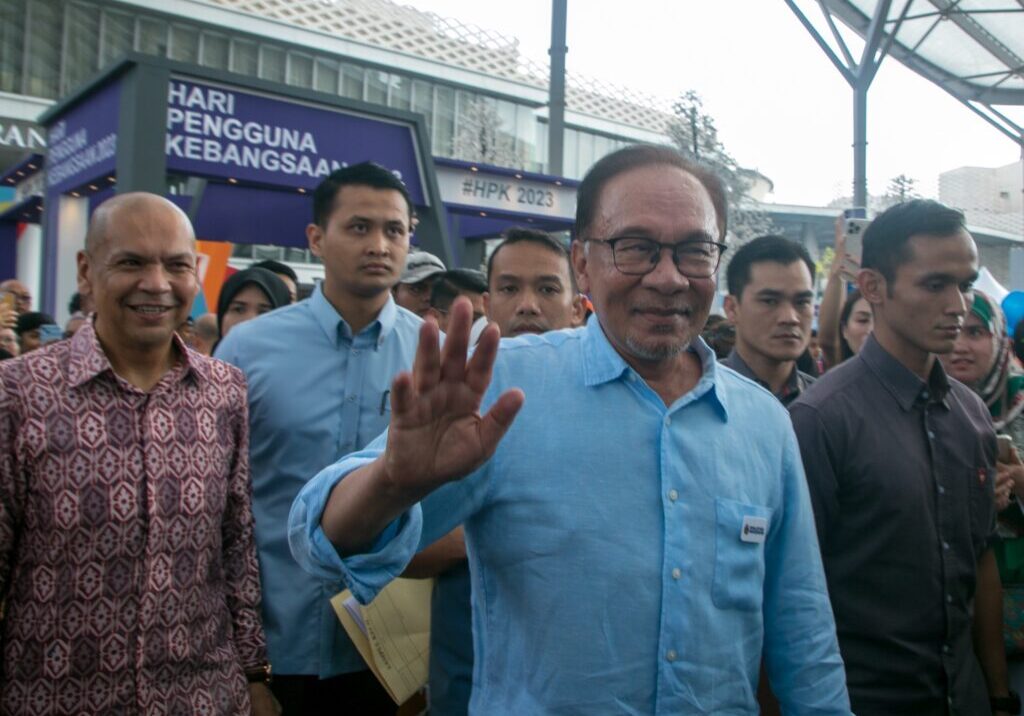Australia/Israel Review
Asia Watch: Whatever it takes
Dec 15, 2022 | Michael Shannon

It took more than two decades and a few stints in prison but Malaysia’s perpetual prime-minister-in-waiting, Anwar Ibrahim, finally occupies his country’s highest political office. Yet the terms of his elevation are laced with compromise and the seeds of his potential downfall, if not from an Opposition determined to play racial politics, then from Anwar’s notional ‘unity government’ allies.
The Anwar-led Pakatan Harapan (PH) bloc secured 82 parliamentary seats at the polls, ahead of former PM Muhyiddin Yassin’s conservative Perikatan Nasional (PN) bloc with 73 seats, but not enough for a simple majority of 112 to form a government. The once-dominant Barisan Nasional (BN) delivered its worst-ever electoral performance, winning just 30 seats, but the efforts of Malaysia’s king, or Yang di-Pertuan Agong, in resolving the political impasse resulted in BN being ushered into an unlikely governing alliance with Anwar.
It’s hard to overstate how precarious this ‘unity’ government is. Anwar is compelled by circumstances to take on as his deputy prime minister Ahmad Zahid Hamidi, the president of the United Malays National Organisation (UMNO) and a man who faces 47 counts of criminal breach of trust, corruption and money laundering charges. In doing so, he has compromised a core tenet of the Pakatan bloc, which campaigned against political corruption, but now has its old nemesis UMNO as a partner, the very party he had helped unseat in the 2018 general election on an anti-graft platform. The question is how much Anwar will have to compromise on principle to retain power, especially with UMNO trying to keep its so-called “court cluster” of indicted politicians out of jail.
In the lead-up to polling day, Anwar was unequivocal. “Any form of coalition will be a major setback because you are having a coalition with essentially racist or Muslim fanatics,” he said, also stating that the 60-year reign of UMNO and BN had led to corruption, nepotism and cronyism.
Not only must Anwar placate his own loyal Pakatan supporters, many of whom are dismayed at his taking on board UMNO, but he must also satisfy the disparate parties within his coalition, most of whom are traditional adversaries, with differing ideologies and electoral constituencies.
To Anwar’s right flank is the official Opposition, Muhyiddin Yassin’s Malay-centric PN, whose senior partner is the rural Islamist Parti Islam se-Malaysia (PAS) – with 43 seats, now the largest single party in the 222-seat parliament. PN’s strategy is to play directly to its obvious constituency, the Malay heartlands.
This was already in evidence during the campaign. Hiving off Malay support from UMNO, PN supporters spread hostile racial posts on social media and continued attacks on the ethnic Chinese-dominated Democratic Action Party (DAP), a core member of Anwar’s coalition. PN leader Muhyiddin accused Pakatan of a ‘Christianisation’ agenda for Malaysia (although he claimed he was taken out of context), while PAS President Abdul Hadi Awang was noted for accusing the DAP of being communists, citing its alleged atheism and “promotion” of LGBTQ rights.
One PAS MP allegedly went even further. An audio recording emerged of a woman who had claimed there was Israeli influence in the appointment of Anwar as prime minister. In the recording, which went viral on Twitter, the woman alleged that PAS MP Hassan Saad told her that his party had secured enough votes to form the government, but Anwar had “contacted Israel and foreign powers” to interfere in his appointment.
Anwar immediately responded, issuing an ultimatum to Hassan to provide written confirmation that he was not involved in the matter. Anwar also demanded that the audio recording be retracted. According to the New Straits Times, Hassan has denied any involvement with the recording.
PH communications director Fahmi Fadzil said the party would take strict measures and lodge police reports against any slander hurled against it. “We won’t take any action over criticism but we draw the line at slander, for instance, being linked to Israel,” he said.
The repeated invocation of the Israeli or Jewish bogeyman is one of the more resilient features of Malaysian political culture, but in an ironic footnote, one of its most notable progenitors has ingloriously departed the political scene.
Perhaps the biggest surprise rout in the election was that of 97-year-old former PM Mahathir Mohamad, who came in fourth in a five-cornered fight in his constituency of Langkawi. The former giant of Malaysian politics suffered the further indignity – like his 57-year-old son and political heir Mukhriz – of losing his campaign deposit by failing to obtain more than one-eighth of the votes cast.






